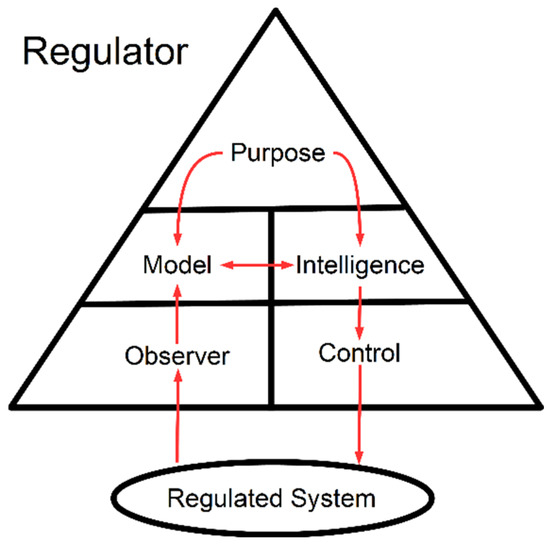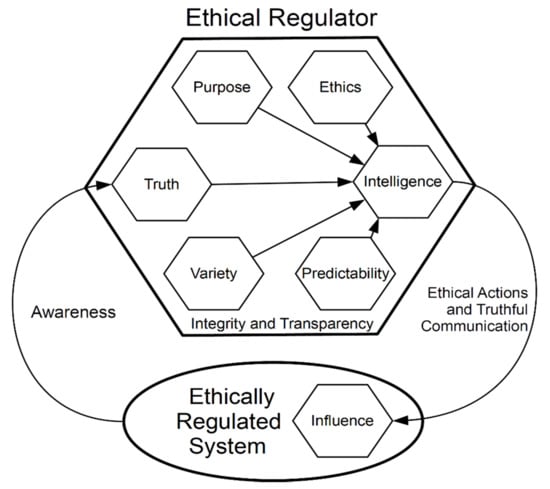Collected papers from ISSS
A topical collection in Systems (ISSN 2079-8954).
Viewed by 16510
Share This Topical Collection
Editors
 Dr. Javier Calvo-Amodio
Dr. Javier Calvo-Amodio
 Dr. Javier Calvo-Amodio
Dr. Javier Calvo-Amodio
E-Mail
Website
Guest Editor
1. Associate Professor of Industrial and Manufacturing Engineering, School of Mechanical, Industrial, and Manufacturing Engineering, Oregon State University, 204 Rogers Hall, Corvallis, OR 97331, USA
2. Chair of the Systems Science Working Group at INCOSE, 7670 Opportunity Rd, Suite 220, San Diego, CA 92111-2222, USA
Interests: integration of systems science into industrial and systems engineering; engineering of organization cultures; systemology; engineering management; system architecture
Special Issues, Collections and Topics in MDPI journals
 Dr. David Rousseau
Dr. David Rousseau
 Dr. David Rousseau
Dr. David Rousseau
E-Mail
Website
Guest Editor
Director, Centre for Systems Philosophy, Surrey KTI5 1EL, UK; Past President, International Society for the Systems Sciences (ISSS), 10 Batter Lane, Rawdon, Leeds LS19 6EU, UK
Interests: systemology; systems philosophy; systems science; general systems theory; exploratory science; worldviews; consciousness studies; ontology; natural moral law theory
Special Issues, Collections and Topics in MDPI journals
Topical Collection Information
Dear Colleagues,
Every year, the International Society for the Systems Sciences (ISSS) convenes a conference where everyone with an interest in the field of systems can meet to present, discuss, and learn about new developments in our understanding or application of systems sciences. The conference has a topical annual theme, but there is also a continuity of subject interests, as represented by the ISSS’s 24 “Special Integration Groups” (SIGs).
This collection highlights the contributions that attendees to the ISSS Annual Conference and systems science community members have made to the development of systems theories.
Dr. Javier Calvo-Amodio
Dr. David Rousseau
Guest Editors
Manuscript Submission Information
Manuscripts should be submitted online at www.mdpi.com by registering and logging in to this website. Once you are registered, click here to go to the submission form. Manuscripts can be submitted until the deadline. All submissions that pass pre-check are peer-reviewed. Accepted papers will be published continuously in the journal (as soon as accepted) and will be listed together on the collection website. Research articles, review articles as well as short communications are invited. For planned papers, a title and short abstract (about 250 words) can be sent to the Editorial Office for assessment.
Submitted manuscripts should not have been published previously, nor be under consideration for publication elsewhere (except conference proceedings papers). All manuscripts are thoroughly refereed through a single-blind peer-review process. A guide for authors and other relevant information for submission of manuscripts is available on the Instructions for Authors page. Systems is an international peer-reviewed open access monthly journal published by MDPI.
Please visit the Instructions for Authors page before submitting a manuscript.
The Article Processing Charge (APC) for publication in this open access journal is 2400 CHF (Swiss Francs).
Submitted papers should be well formatted and use good English. Authors may use MDPI's
English editing service prior to publication or during author revisions.
Keywords
- systems science
- systems philosophy
- systems engineering
- systems thinking
- systems practice
Published Papers (2 papers)
Open AccessCommunication
Problems with Abstract Observers and Advantages of a Model-Centric Cybernetics Paradigm
by
Mick Ashby
Cited by 2 | Viewed by 5227
Abstract
Since 1974, when Heinz von Foerster made the distinction between “the cybernetics of observed systems” as first-order cybernetics (1oC) and “the cybernetics of observing systems” as second-order cybernetics (2oC), cybernetics has been dominated by this observer-centric paradigm that he claimed cannot be extended
[...] Read more.
Since 1974, when Heinz von Foerster made the distinction between “the cybernetics of observed systems” as first-order cybernetics (1oC) and “the cybernetics of observing systems” as second-order cybernetics (2oC), cybernetics has been dominated by this observer-centric paradigm that he claimed cannot be extended meaningfully to a third order. Rather than attempting to extend his paradigm, we derive an alternative, model-centric cybernetics paradigm from the first principles of regulation, which naturally extends to three orders, where the third order is ethical regulation. We thus consider a type of regulator that requires a third model and a third observer: if the third model is a model of acceptable (ethical) situations, then a third observer is a necessary element of the system’s “conscience” that prevents any violations of the model of ethical situations. In this paradigm, the cybernetics of systems that are designed to exhibit ethical behaviour can be characterized as third-order cybernetics (3oC). By being able to extend the paradigm to include ethical systems, the model-centric paradigm brings clarity and utility that is not possible using the observer-centric paradigm and its under-specified (abstract) observers. Finally, new definitions for cybernetics are proposed that clearly differentiate between the science of cybernetics and the philosophy of cybernetics.
Full article
►▼
Show Figures
Open AccessConcept Paper
Ethical Regulators and Super-Ethical Systems
by
Mick Ashby
Cited by 13 | Viewed by 8971
Abstract
This paper combines the good regulator theorem with the law of requisite variety and seven other requisites that are necessary and sufficient for a cybernetic regulator to be effective and ethical. The ethical regulator theorem provides a basis for systematically evaluating and improving
[...] Read more.
This paper combines the good regulator theorem with the law of requisite variety and seven other requisites that are necessary and sufficient for a cybernetic regulator to be effective and ethical. The ethical regulator theorem provides a basis for systematically evaluating and improving the adequacy of existing or proposed designs for systems that make decisions that can have ethical consequences; regardless of whether the regulators are humans, machines, cyberanthropic hybrids, organizations, or government institutions. The theorem is used to define an ethical design process that has potentially far-reaching implications for society. A six-level framework is proposed for classifying cybernetic and superintelligent systems, which highlights the existence of a possibility-space bifurcation in our future time-line. The implementation of “super-ethical” systems is identified as an urgent imperative for humanity to avoid the danger that superintelligent machines might lead to a technological dystopia. It is proposed to define third-order cybernetics as the cybernetics of ethical systems. Concrete actions, a grand challenge, and a vision of a super-ethical society are proposed to help steer the future of the human race and our wonderful planet towards a realistically achievable minimum viable cyberanthropic utopia.
Full article
►▼
Show Figures








